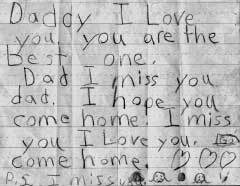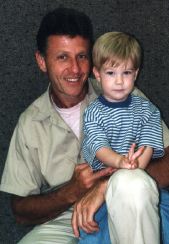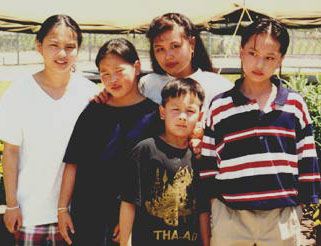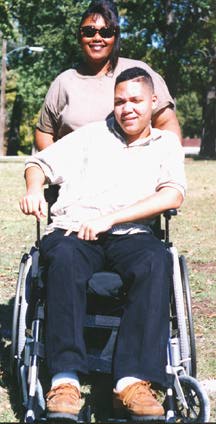More About the Children

Photo: A letter from Drug War POW Vic Plescia's daughter
shows her misery.
Her father is serving 35 years for a non-violent drug
conspiracy.
Giving parents long, cruel sentences for drug
offenses,
thereby forcing children to suffer and attempt to cope
without
their parents, is a form of government-imposed child
abuse.
thereby forcing children to suffer and attempt to cope without
their parents, is a form of government-imposed child abuse.
On this page:
Mary Jane Fike, Laichem
Sae Lee, Martin Sax
Children: The unseen victims
The Universal Declaration of Human Rights Article 16.3 states, "The family is the natural and fundamental group unit of society and is entitled to protection by society and the state."
Yet those who perhaps suffer most from Drug War policies are the children. They are the unseen victims -- left behind to endure the traumatic separation from their parents when long prison sentences are imposed.
In a literal sense, they are being punished, too. When their parents are taken away, the children are sentenced to five, ten, twenty years without their parents love, nurturing, or support. The loss of a mother or father is extremely difficult for any child, under any circumstances. Psychologists have compared the loss of one's parents to the prison system to experiencing a death in the nuclear family. Parents and children grieve each other's absence, and miss them in their lives.
Many children are displaced from their schools and communities when their families are split apart. Brothers and sisters are often separated from each other and moved into different homes, as the burden of caring for more than one child is shared by the extended family or support network. So, in addition to losing their parents and homes, these siblings also often lose each other.
It is difficult for children to cope with all these significant losses in their lives, which may result in behavioral problems, failure in school, and overall dysfunction. They feel angry, lonely, abandoned, and alienated. Some feel ashamed and different from other kids. This can lead to very serious problems. A nationwide survey of troubled children in the juvenile justice system shows that prisoners' children are five times more likely to end up in prison than are other children. They may also harbor hostility or fear towards authority, whom they perceive as being responsible for their situation.
As Calvin Treiber writes, "My mom says my little girl is scared to death when she sees a cop riding down the street in their car cause she knows the cops took her mamma and daddy."
 Martin
Sax
Martin
Sax
age 49, serving 21.8 years
charged with conspiracy to
distribute marijuana, money laundering
charged with conspiracy to
distribute marijuana, money laundering
"My wife has been left to raise our son all by herself. She has no help and Benjamin has no father to put him to bed at night. My little boy will never know what it's like to have his Daddy tuck him in bed, give him a kiss, and read him a bedtime story....
"If the laws don't change, my little boy will be 20 years old before I get out."
Photo: Martin with his son, Benjamin.

Laichem
Sae Lee
Sae Lee
age 32, serving 10 years charged with conspiracy
to import and distribute opium
"My children cry for me. I only talk to them on the phone and only through my imagination can I see them and through photographs that my family sends from home. I am thousands of miles away from my children.... I have seen my children once in four years.... They are not coping with the loss of both their parents...."
Photo: Laichem (center) with her four children, Nick, Nancy, Linda, and Danny.
Note: Laichem's husband is also in prison, and she may be deported upon release, as she is not an American citizen, taking her further away from her children.
Mary Jane Fike
age 45, serving 10 years
charged with conspiracy to
distribute crack cocaine
charged with conspiracy to
distribute crack cocaine
"My son was shot last July, and it left him paralyzed from the shoulder down. He lived with my cousin and her son shot him, and it hit him in the spine. [His cousin] was 18 years old and felt the need to play with a gun. I had to fight my cousin for his custody. Now my niece has my son. She's young, but she is doing the best she can. I don't get to see him too often, because her car is broke. By the grace of God, she will get one soon; but at least, I know he is doing OK."
Photo: Mary Jane Fike with her son, Marlin.

HOME
